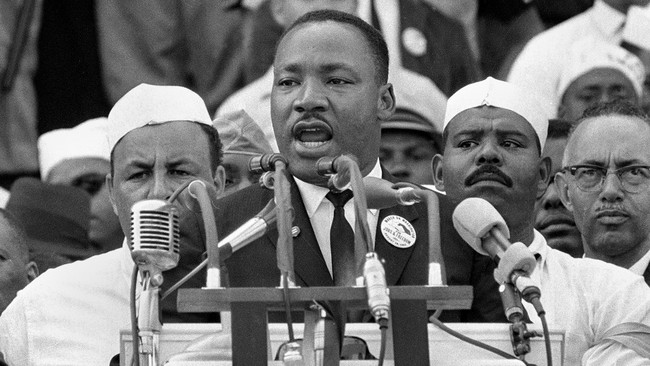We support our Publishers and Content Creators. You can view this story on their website by CLICKING HERE.

Yglesias doesn’t say it as bluntly as my headline does but that is the gist of what he’s saying here. It appears to be part of a series he’s calling “Common Sense Manifesto.”
Advertisement
Everyone is exhausted by the Woke Wars, nobody on the left seems to even know what they want to say about racial justice at this point, and nobody in the center wants to poke the bear. Corporate America is sloughing off its DEI programs, and America’s colleges and universities seem poised to face a slew of civil rights litigation alleging anti-white or anti-Asian discrimination. And yet, the I think an answer is staring us in the face in the form of a cliché that has, unfortunately, been superficially embraced by the right.
…we should, in fact, judge people by the content of their character rather than by the color of their skin, rejecting discrimination and racial profiling without embracing views that elevate anyone’s identity groups over their individuality.
This is of course correct and something I and others have been saying for quite a while. People aren’t races they are individuals. Pre-judging individuals on the basis of their group identity is never going to be a way to generate less racism because it’s the definition of racism. Of course Yglesias is running a Substack subscription site here so he tries his best to imply conservatives are behaving badly too, but it’s a stretch.
…on the one hand, progressives have somewhat ceded the concept to conservatives, alleging that colorblindness as a regulative ideal is a reactionary plot and that skepticism of relentless efforts to reify racial categories is, itself, a form of racism. On the other, conservatives have taken too much of the progressive haterade to heart and act as if King’s ideal requires nothing of us in a world where literal Jim Crow laws are no longer on the books.
Advertisement
Who said King’s vision of colorblindness required nothing of us? Not me, certainly. What I (and again many others) have said is that treating people as individuals is a valuable and indeed necessary way to avoid actual racism (not the vague systemic kind).
The truth is that this is actually a challenging and ambitious doctrine, one that in many ways goes against basic human instincts. It would take a lot for conservatives to actually live up to this ideal!
Again, he’s writing as if conservatives have never considered that judging people as individuals, for good or ill, takes a lot more work than coasting on assumptions about entire groups. He’s assuming that conservatives don’t know any minorities or don’t have minority family members or friends? Only after assuming the worst about people he doesn’t seem to know does he get around to the actual point of his essay.
At the same time, it also runs contrary to many progressive impulses that are making it hard for the contemporary left to manage functional institutions in a diverse society.
Woke is eating the left alive and conservatives have identified the correct solution. That’s awkward for people on the far left to admit but it’s true. To his credit, most of the rest of his essay is focused on the left’s identity politics problem.
I think a lot of people who are aware that diversity programming is a little silly and ineffectual nonetheless see it as a kind of second-best alternative to true justice, or else feel that complaining about it is cringe and bad. But these programs are often directly counterproductive and can actually increase animosity, so it’s worth complaining.
Advertisement
As a society we’re spending a tremendous amount of money and time on a “solution” that either does nothing or actually makes things worse. For the record, I’m firmly in the makes worse category. It makes things much worse for the mostly white people who are being discriminated against in university jobs and admissions and likely in corporate America too. It also makes things worse for the minorities who’ve been taken in by the idea that this is a healthy way to view the world, i.e. as a pitched battle between oppressors and oppressed with them always on the wrong side.
Dr. King was ultimately a socialist and so not my cup of tea when it came to economics, but he was right about treating people as individuals. We may not always do it perfectly or even well but there’s no other approach that is going to yield better results, certainly not identity politics.

 Conservative
Conservative  Search
Search Trending
Trending Current News
Current News 







